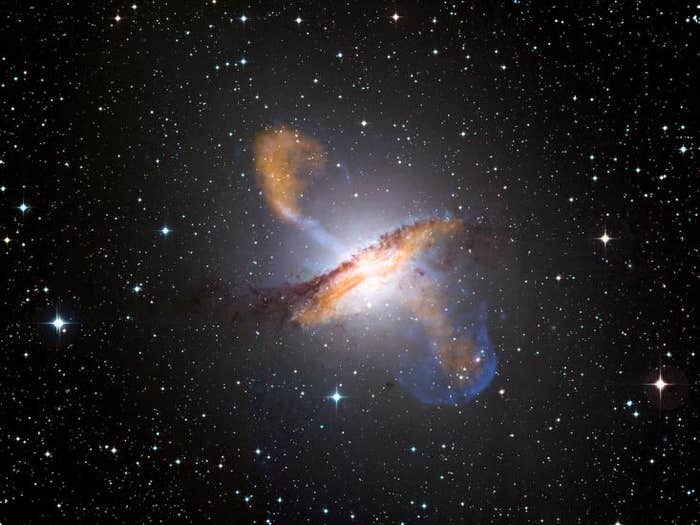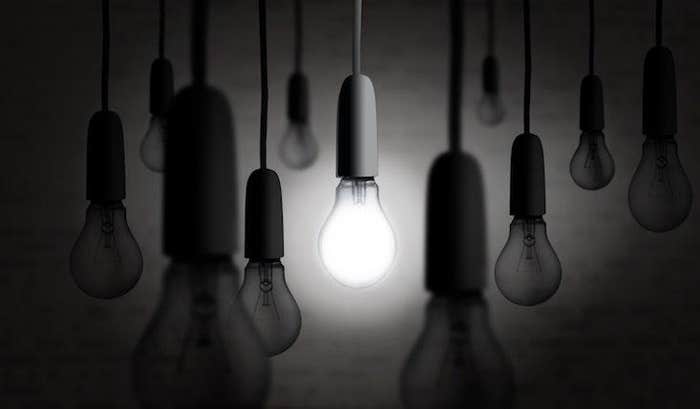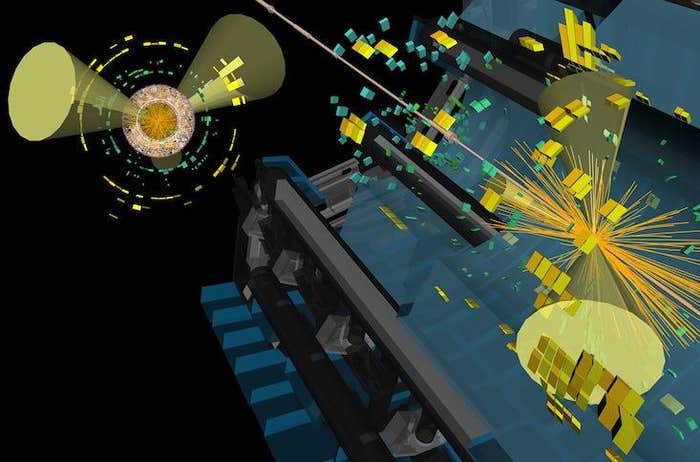Issue_62
18 articles-
Announcing a Black Hole Essay Competition from Harvard
The $10,000 First Prize will include the opportunity to publish the winning article in Nautilus, a leading online and print magazine that blends science, culture, and philosophy. Nautilus Members enjoy an ad-free experience. Log in or Join now . The Black Hole Initiative (BHI) at Harvard University announces the first-ever Black Hole Essay Competition, inviting […] -
Many of Our Beliefs Are Unconscious: A Response to Nick Chater
After a few years of driving, you are able to hold conversations while navigating a busy city. How is this possible without unconscious thought?Photograph by wavebreakmedia / Shutterstock Nautilus Members enjoy an ad-free experience. Log in or Join now . Nick Chater has put forward a bold claim in his recent book, The Mind Is […] -
How Artificial Intelligence Can Supercharge the Search for New Particles
Reprinted with permission from Quanta Magazine‘s Abstractions blog. Nautilus Members enjoy an ad-free experience. Log in or Join now . The Large Hadron Collider (LHC) smashes a billion pairs of protons together each second. Occasionally the machine may rattle reality enough to have a few of those collisions generate something that’s never been seen before. But because […] -
This Man Says the Mind Has No Depths
Nick Chater argues our brain is a storyteller, not a reporter from an inner world. -
There Is No Such Thing as Unconscious Thought
A behavioral scientist unravels one of our most cherished conceptions.
-

Bo Burnham and the Illusion of Meritocracy
In a WTF with Marc Maron podcast episode from 2012, musical comedian Bo Burnham said his fortune felt unreal, as if his life were a futuristic VR game. “I could die, take off a helmet, and, look: It’s the Bo Burnham 2000. There’s a whole line of people crying waiting in line,” he told Maron. […]
-

Why We Should Think Twice About Colonizing Space
My conclusion is that in a colonized universe the probability of the annihilation of the human race could actually rise rather than fall.Illustration by David Revoy / Blender Foundation / Wikicommons Nautilus Members enjoy an ad-free experience. Log in or Join now . There are lots of reasons why colonizing space seems compelling. The popular […]
-

Do Religious People Really Have a Problem with Evolution?
My journey into the middle ground of the science-religion culture war.
-

Our Strange Relationship to World Cup Probabilities
What this World Cup reveals isn’t that the stats were wrong—far from it, they were insightfully calculated—but rather that we relate to stats and probabilities in strange ways.Photograph by Hey! Play! / Wayfair Nautilus Members enjoy an ad-free experience. Log in or Join now . This year’s World Cup has been full of surprises. Tournament […]
-

Why It’s Hard to Recognize a Black Hole
Despite having a standard model of an AGN—a supermassive black hole surrounded by an accretion disk with jets streaming out in opposite directions, all encompassed by a dusty torus—making sense of our observations is still a challenge.NASA/CXC/CfA/R.Kraft et al.; MPIfR/ESO/APEX/A.Weiss et al.; ESO/WFI. Nautilus Members enjoy an ad-free experience. Log in or Join now . […]
-
Is Fixing the Climate Incompatible with American Ideals?
Inalienable rights in the age of carbon dioxide. -
Is This Man the Elon Musk of E-Waste?
Eric Lundgren’s electric car goes farther than a Tesla. He’s also going to prison. -
The Painful Wait for a Hangover Pill
One survey of 2,000 people found that if you have only one hangover a month, it adds up to two years of total sick time over the course of a lifetime.Photograph by ShotPrime Studio / Shutterstock Nautilus Members enjoy an ad-free experience. Log in or Join now . From freezing showers to ingesting prickly pear to smoking […] -
What Is the Sun Made Of and When Will It Die?
Reprinted with permission from Quanta Magazine’s Abstractions blog. Nautilus Members enjoy an ad-free experience. Log in or Join now . Like any star in its prime, the sun consists mainly of hydrogen atoms fusing two by two into helium, unleashing immense energy in the process. But it’s the sun’s tiny concentration of heavier elements, which […] -
The Biggest Misapprehension About Human Origins
Archaeologist Ticia Verveer recently posted a thread on Twitter showing that customer complaints go way back. And I mean way back. Verveer referred to a letter inscribed on a 3,700-year-old Babylonian clay tablet. In the letter, Verveer writes, “The copper merchant Nanni details at length his anger at a sour deal, and his dissatisfaction with […]

























